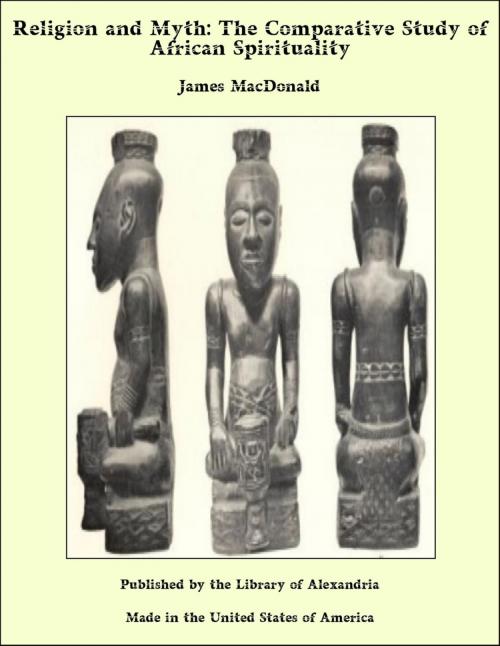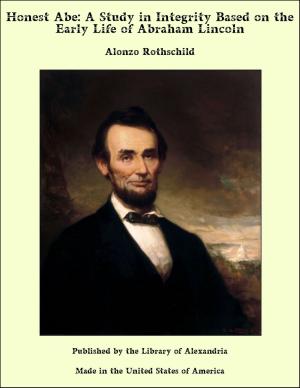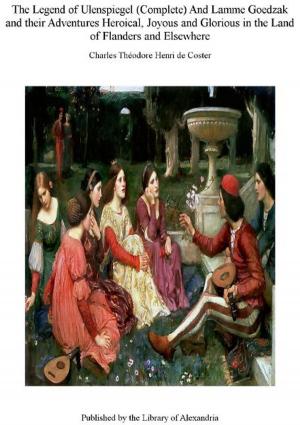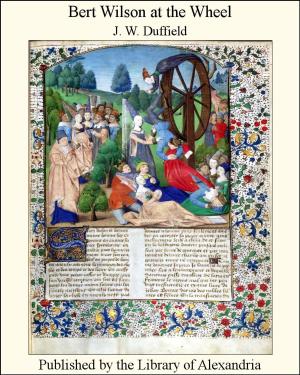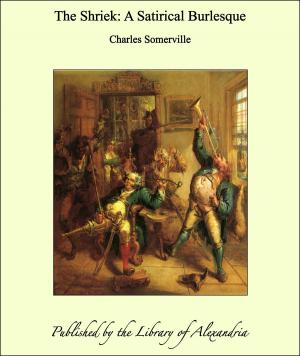Religion and Myth: The Comparative Study of African Spirituality
Nonfiction, Religion & Spirituality, New Age, History, Fiction & Literature| Author: | James MacDonald | ISBN: | 9781465517029 |
| Publisher: | Library of Alexandria | Publication: | March 8, 2015 |
| Imprint: | Language: | English |
| Author: | James MacDonald |
| ISBN: | 9781465517029 |
| Publisher: | Library of Alexandria |
| Publication: | March 8, 2015 |
| Imprint: | |
| Language: | English |
Religion in the widest sense may be defined as man's attitude towards the unseen, and the earliest forms of human thought furnish the clue from which must be traced the development of those great systems of religion that have at different periods been professed by the majority of men. Under the term religion we must include, not only beliefs in unseen spiritual agencies, but numerous customs, superstitions, and myths which have usually been regarded, by both travellers and students, as worthless and degrading, till within a comparatively recent period. Only by taking account of such, and comparing usages common among tribes far removed from the influence of civilisation with survivals in other parts of the world, can we arrive at any definite knowledge regarding the world's earliest systems of thought. In both ancient Greece and Italy the union of royal title with priestly functions was common. At Rome the tradition was, that the sacrificial king had been appointed to perform sacred functions formerly belonging to the ruling monarch, after the overthrow of the ancient dynasty and the expulsion of the kings. In republican Athens the second magistrate of the city was called King, and his wife Queen. The functions of both were religious. Other examples will occur to readers familiar with the classics. Such traditions and usages leave no doubt but in very early times kings were not only civil rulers, but also the priests who offered the sacrifices and stood between the worshippers and the unseen world. The king would thus be revered as the ruler and father of his people who protected and cared for them. He would be also alternately feared and loved as the ghostly intercessor of men, and regarded as himself partaking of the ghostly nature, for the divinity which hedged a king in those days was no empty title, but a sober fact. He was regarded as able to bestow or withhold blessings; to bring blight and curse, and remove them; and so, being above and beyond the control of his subjects, reverence and fear would easily pass into adoration and worship. To us this may appear strange, but it is quite consistent with savage thought. To the savage African or South Sea Islander the world is largely, if not exclusively, worked by supernatural agents, and these act on impulses similar to those which move and influence men, and with which he is familiar in himself and others. Where the forces of nature are under the control of the king-priest, the worshipper sees no limit to his power and the influence he can exert on the course of nature, or even upon the material universe itself, as when a man's father's spirit shakes the earth because the king hurt his toe. He holds converse with the gods. From them come abundant crops, fecundity, success in war, and kindred blessings, and the king who bestows these is regarded as having the god residing in his own person; to the savage man he is himself divine.
Religion in the widest sense may be defined as man's attitude towards the unseen, and the earliest forms of human thought furnish the clue from which must be traced the development of those great systems of religion that have at different periods been professed by the majority of men. Under the term religion we must include, not only beliefs in unseen spiritual agencies, but numerous customs, superstitions, and myths which have usually been regarded, by both travellers and students, as worthless and degrading, till within a comparatively recent period. Only by taking account of such, and comparing usages common among tribes far removed from the influence of civilisation with survivals in other parts of the world, can we arrive at any definite knowledge regarding the world's earliest systems of thought. In both ancient Greece and Italy the union of royal title with priestly functions was common. At Rome the tradition was, that the sacrificial king had been appointed to perform sacred functions formerly belonging to the ruling monarch, after the overthrow of the ancient dynasty and the expulsion of the kings. In republican Athens the second magistrate of the city was called King, and his wife Queen. The functions of both were religious. Other examples will occur to readers familiar with the classics. Such traditions and usages leave no doubt but in very early times kings were not only civil rulers, but also the priests who offered the sacrifices and stood between the worshippers and the unseen world. The king would thus be revered as the ruler and father of his people who protected and cared for them. He would be also alternately feared and loved as the ghostly intercessor of men, and regarded as himself partaking of the ghostly nature, for the divinity which hedged a king in those days was no empty title, but a sober fact. He was regarded as able to bestow or withhold blessings; to bring blight and curse, and remove them; and so, being above and beyond the control of his subjects, reverence and fear would easily pass into adoration and worship. To us this may appear strange, but it is quite consistent with savage thought. To the savage African or South Sea Islander the world is largely, if not exclusively, worked by supernatural agents, and these act on impulses similar to those which move and influence men, and with which he is familiar in himself and others. Where the forces of nature are under the control of the king-priest, the worshipper sees no limit to his power and the influence he can exert on the course of nature, or even upon the material universe itself, as when a man's father's spirit shakes the earth because the king hurt his toe. He holds converse with the gods. From them come abundant crops, fecundity, success in war, and kindred blessings, and the king who bestows these is regarded as having the god residing in his own person; to the savage man he is himself divine.
